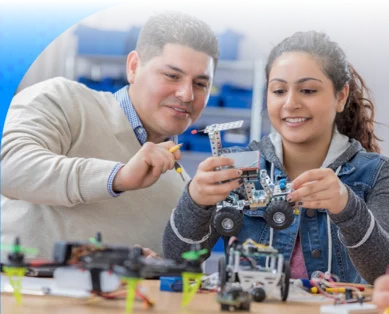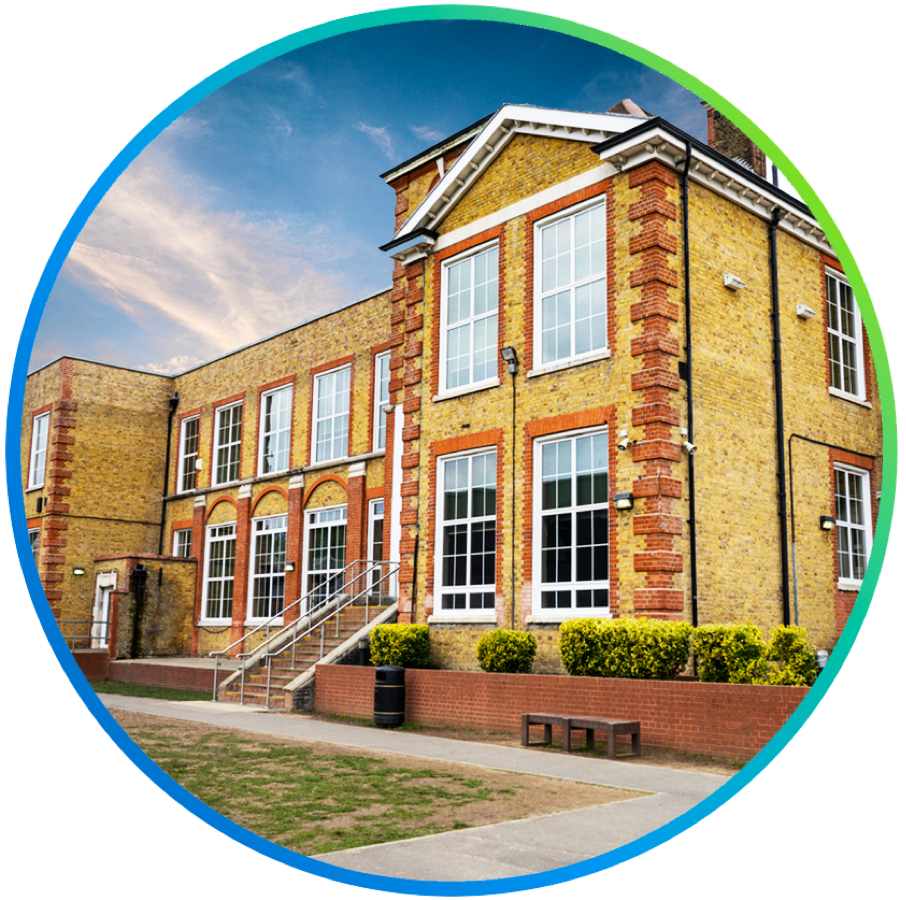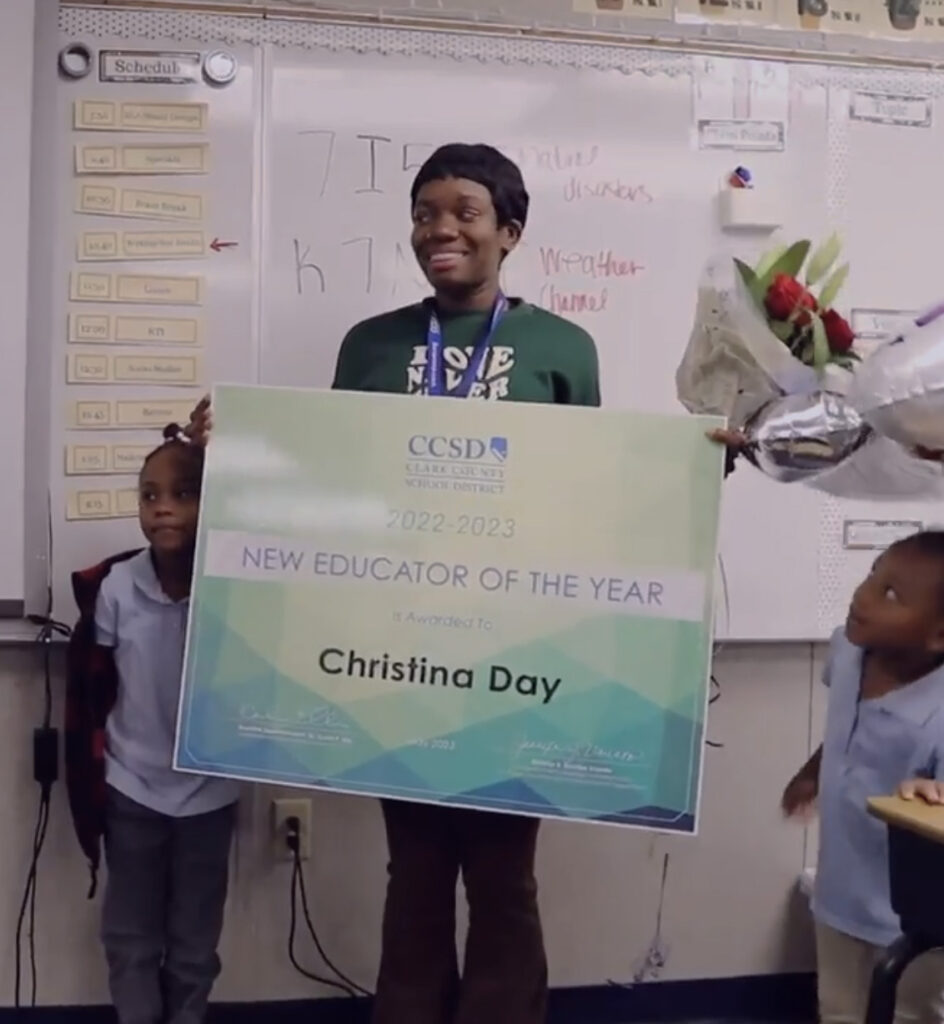
Become
a Teacher
It’s time to be the teacher you’ve always
wanted to be. Apply today and
begin your journey to the classroom.

How to
Become a Teacher
To embark on a teaching career, you’ll need to obtain state certification. There are four major steps in the certification process.
- Meet the state’s educational background requirements, as well as those for a state-approved educator preparation program
- Complete an education program, likely including a teaching residency
- Pass your state’s required exams for your desired teaching position
- Apply for your certificate and participate in a background check

Teachers Come from All Backgrounds
Switchers
& Paraprofessionals
Students
Majors
Switchers
- Many individuals become teachers after working in completely different fields.
- Whether you’re responding to the nationwide shortage of teachers and want to help or have always wanted to be a teacher but put it off, becoming a teacher is still possible for you.
- Enjoy summers off and, if you have children, calibrate your working day to your children’s school schedules.
& Paraprofessionals
- Those already working in K-12 schools typically enjoy a guaranteed teaching position once they complete the necessary training.
- If you are already dedicated to K-12 education, why not take the next step to become a licensed teacher in your state?
Students

Majors

Why Become a Teacher?
There are so many great reasons to teach.
Make a
Difference
Job
Security
Creative
Outlet
Summers Off &
Paid Holiday Breaks
Lifelong
Learning
No Day
is the Same
Routes to Becoming a Teacher
There are three main pathways that you can explore.
Alternative Teacher Certification
Enroll in an alternative teacher certification program
- This route can take 12-18 months, most of which will be spent in a teaching residency with full pay and benefits. Check with your state’s Department of Education to see if alternative certification programs are approved.
- Candidates must have a bachelor’s degree in any subject to enroll in an alternative teacher certification program.
- Most programs allow candidates to start teaching in the classroom with full pay once initial requirements are met.
- The average cost of an alternative teacher certification program is $4,949*.
Traditional Certification
Earn a bachelor’s degree in education
- This route usually takes 4-5 years and you would graduate with an undergraduate degree to teach in a K-12 setting.
- You will still need to complete student teaching and pass state-required certification tests.
- The average cost of a public 4-year university with in-state tuition is $25,707 per year for an average total cost of $98,828.
Master’s Program
Earn a master’s degree in education
- This route is open to four-year college graduates and takes 2 years, depending on the program chosen.
- You will still need to complete student teaching and pass state-required certification tests.
Where Can Teachers Work?

Public Schools
Public school districts accept and teach all children living within the school district’s boundaries. Public schools are funded by local taxes and run by a local school board. Teaching in a public school means you will likely teach students in the local community.

Magnet Schools

Charter Schools
Charter schools are public schools run by a board or other organization instead of a local school board. Charter schools are also free for residents within a certain district. Most charter schools receive funding from the local school district and usually receive outside funding, allowing them freedom from certain district policies.

Private Schools
Private schools are funded through student tuition and fees. Private schools develop their own academic standards and requirements. If you want to teach at a private school, it is possible you will not be required to have a state teacher certification.


